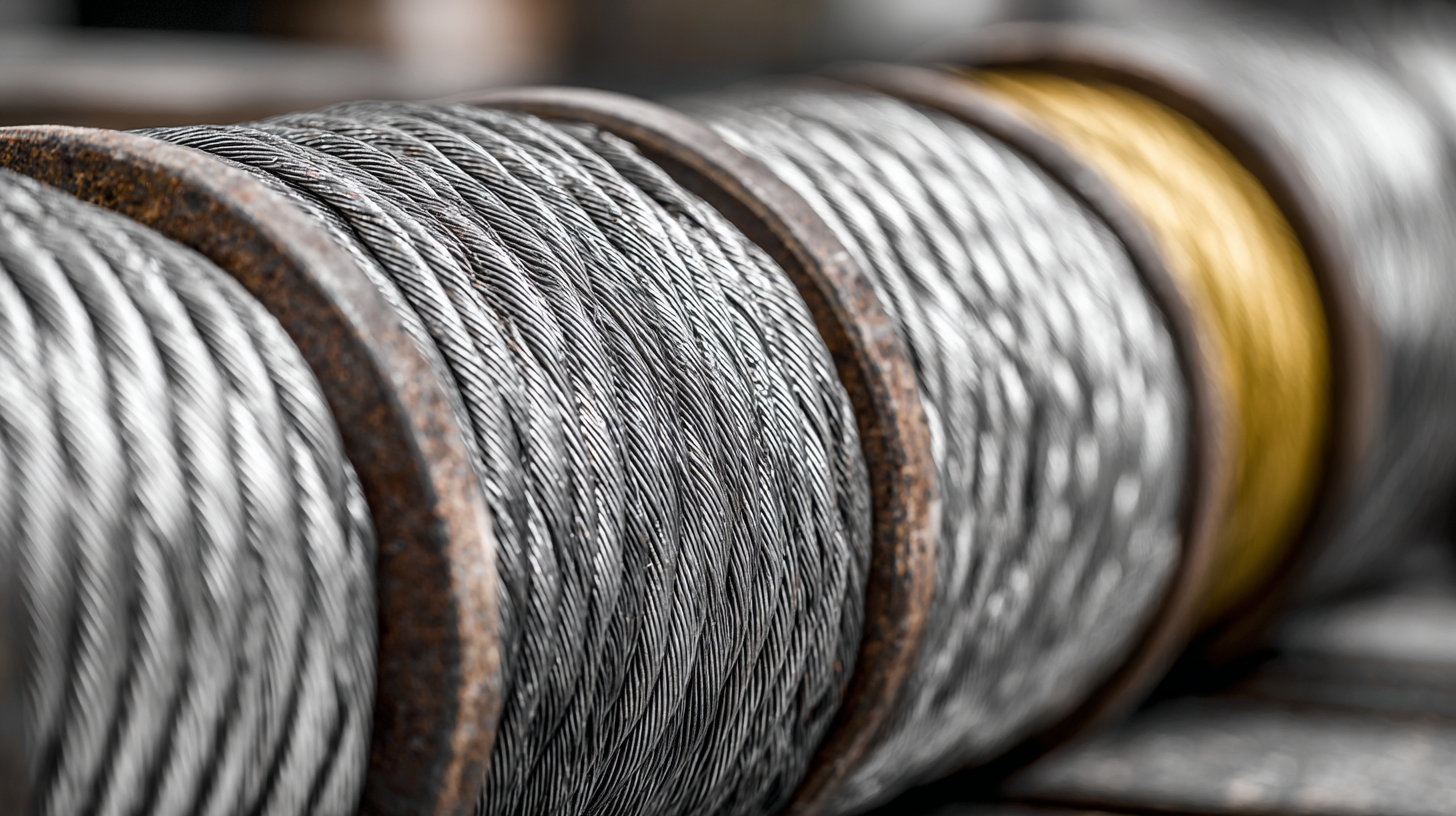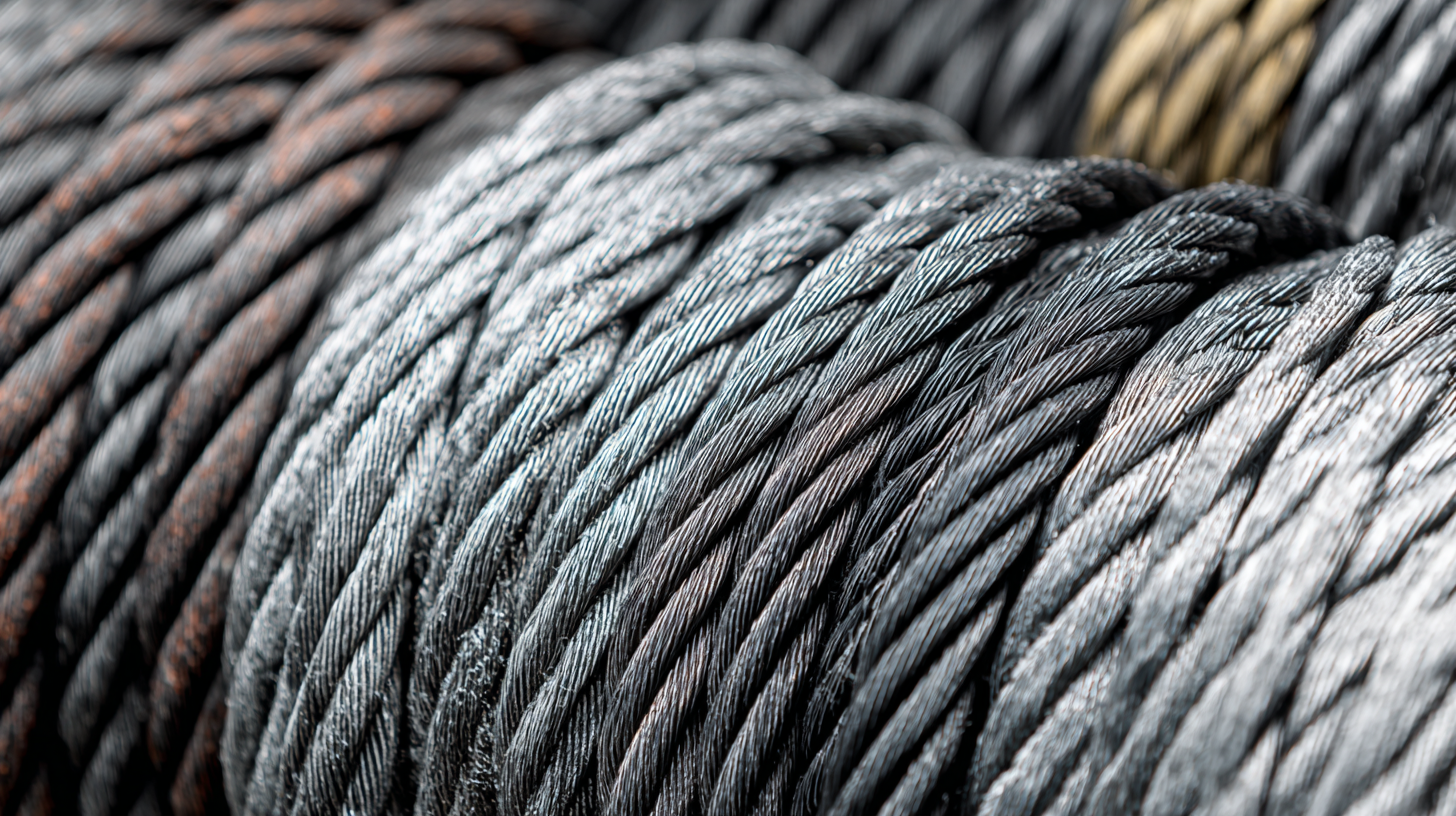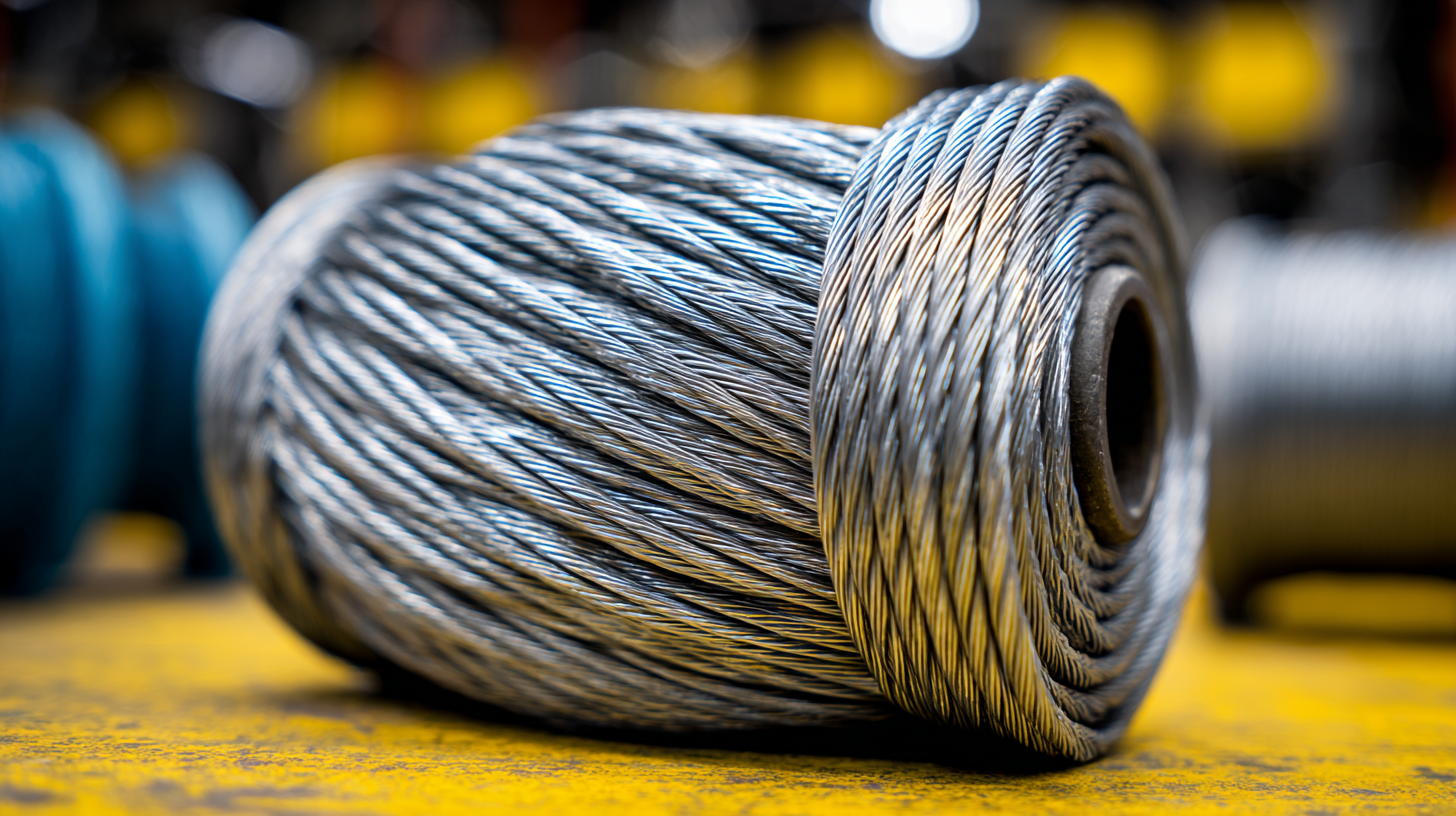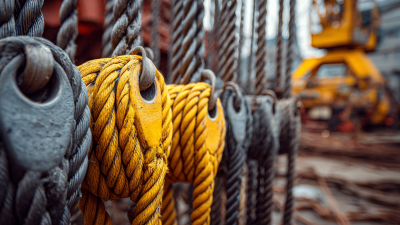
Leave Your Message

Choosing the right Elevator Steel Wire Rope is crucial for the safety, efficiency, and longevity of vertical transportation systems. According to a report by the International Organization for Standardization (ISO), approximately 20% of lift-related accidents are linked to the failure of the wire rope, highlighting the importance of selecting high-quality materials. The global elevator market is expected to grow significantly, with a projected value of over $107 billion by 2025, underscoring the increasing demand for reliable and robust elevator components, including steel wire ropes. With various options available, understanding the specifications, such as breaking strength, material composition, and construction type, is essential for making an informed choice that meets your specific lifting needs. This guide will explore the key factors to consider when selecting the ideal Elevator Steel Wire Rope, ensuring optimal performance and safety for your vertical transport solutions.

When selecting the best elevator steel wire rope for your needs, it is crucial to understand the various types available in the market. Elevator steel wire ropes typically fall into categories such as rotating and non-rotating wire ropes. Non-rotating wire ropes, for instance, are designed to prevent twisting during operation, making them ideal for applications where stability and safety are paramount. These ropes can be utilized in various settings, including tower cranes and marine applications, demonstrating their versatility and importance in the industry.
In addition to the basic types, advancements in technology have greatly enhanced the inspection and monitoring of elevator cables. Recent research has focused on damage types and detection technologies, ensuring that the cables meet safety and functional standards. This comprehensive approach to condition assessment not only guarantees the reliability of the elevator system but also extends the lifespan of the wire ropes. As the demand for high-performance elevator systems grows, understanding these classifications and advancements will help users make informed choices when selecting steel wire ropes for their specific needs.

When selecting elevator steel wire rope, several key factors must be considered to ensure safety, durability, and performance. The first factor is the diameter of the wire rope. According to industry reports, a typical diameter for elevator wire ropes ranges from 6 mm to 20 mm, and choosing the right diameter is crucial as it directly affects the rope's load-bearing capacity and resistance to wear. For instance, ropes with a larger diameter may handle heavier loads but can be less flexible, impacting the overall efficiency of the elevator system.
Another critical aspect is the construction type of the wire rope, which can include options like multi-strand, single-strand, or fiber core ropes. A study by the International Organization for Standardization (ISO) emphasizes that multi-strand constructions, such as those using six or eight strands, provide better flexibility and fatigue resistance, making them ideal for high-usage elevators. Finally, it’s important to consider the material quality, as high-strength steel ropes can significantly enhance performance. The 2021 Global Steel Wire Rope Market Report indicated that ropes made of galvanized steel exhibit superior resistance to corrosion, ensuring longevity even in harsh environments, thereby reducing maintenance costs over time.
| Factor | Description | Recommendation |
|---|---|---|
| Diameter | Determine the required diameter based on load capacity and elevator design. | Common diameters range from 6mm to 26mm. |
| Material | Consider the type of steel and its resistance to corrosion and wear. | Opt for galvanized or stainless steel for better longevity. |
| Construction | Look at the number of strands and wires, which affect flexibility and strength. | A higher number of smaller wires typically offers better flexibility. |
| Load Capacity | Ensure the rope can handle the maximum load the elevator will carry. | Calculate based on elevator specifications and safety factors. |
| Safety Features | Evaluate inherent safety features, such as break loads and tensile strength. | Select ropes with high break loads and safety ratings. |
| Environmental Considerations | Assess the operational environment which can affect material choice. | Use ropes suited for humid, chemical, or severe environments. |
When selecting the best elevator steel wire rope, it is crucial to perform a comparative analysis of different wire rope materials. The most commonly used materials include stainless steel, galvanized steel, and synthetic options like aramid fibers. Stainless steel wire ropes are known for their corrosion resistance and durability, making them ideal for environments exposed to moisture or chemicals. Their high tensile strength also provides excellent safety margins, which is particularly important in elevator applications.
On the other hand, galvanized steel wire ropes are often more cost-effective and provide adequate strength for standard elevator systems. They are treated with a zinc coating to prevent rusting, although they may not perform as well as stainless steel in highly corrosive settings. Additionally, synthetic ropes, while less traditional, offer advantages such as reduced weight and flexibility. These materials can provide significant benefits in specific applications where weight reduction is paramount, yet they may lack the strength and durability of their steel counterparts. Ultimately, the decision should be based on the specific environmental conditions and load requirements of the elevator system.
This chart illustrates the comparative breaking strengths of different wire rope materials suitable for elevator applications. Steel wires exhibit the highest breaking strength, followed by stainless steel and galvanized steel. Synthetic fibers, while lighter, offer lower strength levels.
When selecting the best elevator steel wire rope, understanding load capacity and strength requirements is crucial. Load capacity refers to the maximum weight the rope can safely lift. It is vital for ensuring the safety and efficiency of an elevator system. To determine the appropriate load capacity, one must consider the total weight of the elevator, including its maximum load, as well as the frequency of use. Choosing a wire rope with a higher load capacity than what is required can provide an added safety margin, especially in high-use scenarios.
Strength requirements are equally important, as they relate to the tensile strength of the wire rope. This strength determines the rope's ability to withstand dynamic loads during operation, such as acceleration and deceleration. Factors such as environmental conditions, potential wear and tear, and the duration of service should all influence your choice. Before making a decision, it's advisable to consult with manufacturers or industry standards to ensure the selected wire rope meets the specific strength requirements for the intended application, prioritizing safety and reliability in elevator performance.
When it comes to selecting the best elevator steel wire rope, maintenance is key to ensuring the longevity and safety of the equipment. Regular inspections are essential to identify signs of wear, fraying, or corrosion. A proactive approach can help detect potential issues before they escalate into serious problems. It is advisable to maintain a log of inspections, documenting any findings and repairs, to track the rope's condition over time.
Tips: Always inspect the wire rope under controlled conditions to avoid missing any subtle deformities. In addition, consider implementing a professional maintenance schedule that aligns with the rope's usage and manufacturer’s recommendations.
Proper lubrication is another critical aspect of maintenance. Lubricants help reduce friction, prevent rust, and extend the life of the wire ropes. Ensure that the lubricant used is compatible with the wire rope material and conforms to industry standards. Regularly applying the appropriate lubricant can significantly enhance performance and reliability.
Tips: When lubricating, pay attention to the entire length of the wire rope, focusing on areas that frequently experience contact with sheaves or drums. Regularly rotate the ropes if possible to promote even wear and balance.






